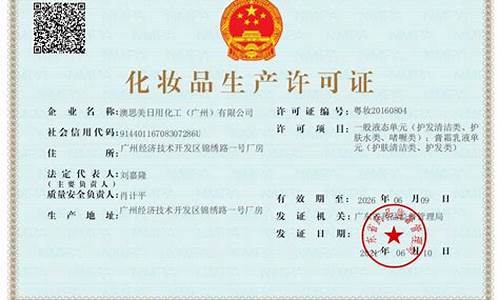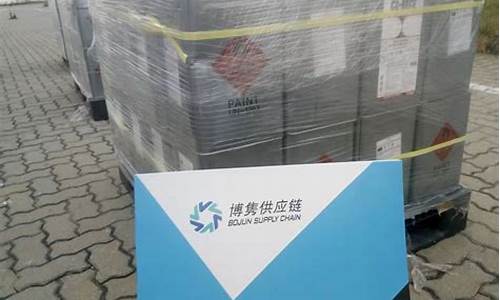
化工品种类大全名称是一份包含各种不同类型化工产品及其名称的资料。这份资料对于从事化工行业的人士来说具有非常重要的意义,可以帮助他们更好地了解市场上的各种产品情况,从而更好地进行采购和销售工作。

在化工生产过程中,原料是必不可少的组成部分。并不是所有的化工品都需要自己生产原料。为什么有些化工品需要自己生产原料,而有些则不需要呢?本文将详细介绍这一问题。

化工品种类繁多,涵盖了许多不同的产品和应用领域。以下是一些常见的化工品种类及其对应的图片和名称:

生产化工品需要什么资质?

生产化工品的检测取样是保障公众生命财产安全和环境健康的重要环节。对于生产化工品的企业或个人,必须按照相关法律法规和标准要求进行操作,确保样品的真实性和准确性。如果在检测取样过程中出现问题,法院将根据相关法律法规进行处理。

生产化工品的检测取样是保障公众生命财产安全和环境健康的重要环节。对于生产化工品的企业或个人,必须按照相关法律法规和标准要求进行操作,确保样品的真实性和准确性。如果在检测取样过程中出现问题,法院将根据相关法律法规进行处理。

在化工生产过程中,原料是必不可少的组成部分。并不是所有的化工品都需要自己生产原料。为什么有些化工品需要自己生产原料,而有些则不需要呢?本文将详细介绍这一问题。

尊敬的评审委员会:

在化工行业中,生产和销售化工品需要取得相应的资质证书。这些证书是企业合法生产的保障,也是企业与客户建立信任的基础。本文将详细介绍不同类型化工品所需的资质证书。

尊敬的评审委员会:

United States
The United States has a complex tax system for chemicals, with different rates applying to different types of chemicals. The most significant tax rate is the federal excise tax, which is applied to many types of chemicals, including gasoline and diesel fuel. This tax is based on the type of chemical and its purity level. For example, gasoline containing more than 15% ethanol has a higher federal excise tax rate than gasoline containing less than 15% ethanol.
In addition to the federal excise tax, there are also state and local taxes that may be applied to chemicals. These taxes can vary widely depending on the location and type of chemical.
Canada
The Canadian government applies a value-added tax (VAT) to most chemicals, which is equivalent to a sales tax. The VAT rate varies depending on the type of chemical and its purity level. For example, chemicals with a high purity level may have a lower VAT rate than those with a lower purity level.
In addition to the VAT, Canada also has a provincial sales tax that may be applied to certain types of chemicals. This tax is typically lower than the federal VAT rate.
Europe
The European Union has a single market for chemicals, which means that all chemicals sold within the EU must comply with the same tax rules. The European Union has a flat rate of 25% for most chemicals, except for some specific products such as food additives and pharmaceuticals, which have lower VAT rates.
In addition to the VAT, there are also other taxes that may be applied to certain types of chemicals, such as excise duties or customs duties. These taxes can vary widely depending on the type of chemical and its country of origin.
China
China has a complex tax system for chemicals, with different rates applying to different types of chemicals. The most significant tax rate is the national sales tax (VAT), which is applied to most goods, including chemicals. The VAT rate varies depending on the type of chemical and its purity level. For example, chemicals with a high purity level may have a lower VAT rate than those with a lower purity level.
In addition to the VAT, China also has other taxes that may be applied to certain types of chemicals, such as excise duties or customs duties. These taxes can vary widely depending on the type of chemical and its country of origin.
Conclusion
The taxation of chemicals is an important factor in determining their prices and availability in different markets around the world. Different countries have different tax rates for chemicals, which can impact their competitiveness in the international market. Understanding these tax rates is essential for businesses that operate globally and need to ensure compliance with local regulations.

化工品种类大全名称是一份包含各种不同类型化工产品及其名称的资料。这份资料对于从事化工行业的人士来说具有非常重要的意义,可以帮助他们更好地了解市场上的各种产品情况,从而更好地进行采购和销售工作。

在化工生产过程中,原料是必不可少的组成部分。并不是所有的化工品都需要自己生产原料。为什么有些化工品需要自己生产原料,而有些则不需要呢?本文将详细介绍这一问题。

化工品种类繁多,涵盖了许多不同的产品和应用领域。以下是一些常见的化工品种类及其对应的图片和名称:

生产化工品需要什么资质?

生产化工品的检测取样是保障公众生命财产安全和环境健康的重要环节。对于生产化工品的企业或个人,必须按照相关法律法规和标准要求进行操作,确保样品的真实性和准确性。如果在检测取样过程中出现问题,法院将根据相关法律法规进行处理。

生产化工品的检测取样是保障公众生命财产安全和环境健康的重要环节。对于生产化工品的企业或个人,必须按照相关法律法规和标准要求进行操作,确保样品的真实性和准确性。如果在检测取样过程中出现问题,法院将根据相关法律法规进行处理。

在化工生产过程中,原料是必不可少的组成部分。并不是所有的化工品都需要自己生产原料。为什么有些化工品需要自己生产原料,而有些则不需要呢?本文将详细介绍这一问题。

尊敬的评审委员会:
Copyright © 2024 河南巩义市新华化工厂
电话:400-888-8888 邮箱:admin@admin.com
联系人:张经理 公司地址:河南省

扫一扫关注我们